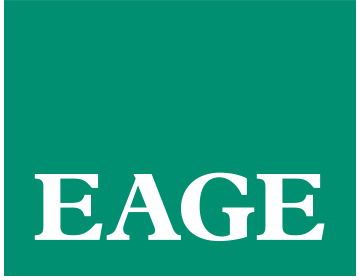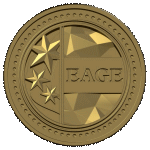Participate in the Laurie Dake Challenge competition
If you happen to be working with a diverse group of fellow students that would like to test their knowledge and team working skills, the Laurie Dake Challenge may be for you!
The Laurie Dake Challenge is one of EAGE’s most prestigious student competitions. It requires participants to excel in some of the key areas of EAGE’s mission: multidisciplinary group work, data integration, and the honing of your project management, cooperation, and presentation skills.
As a leading competition within the Association, the challenge will require teams to be inquisitive, innovative, and analytical thinkers. Each year, the dataset poses new challenges throughout the three rounds.
Participating teams:
- Have a shot at winning the EAGE Laurie Dake Challenge trophy
- Gain exposure to leading experts in the industry
- Finalists will have the chance to participate in the EAGE Annual Conference & Exhibition
- Gain hands-on experience with valuable datasets from real hydrocarbon fields
How to participate in the Laurie Dake Challenge
Universities are invited to participate in the Laurie Dake Challenge with a multidisciplinary team of 3 to 5 students (one PhD student per team allowed). The competition includes three selection rounds that are further explained below.
To enter the competition each team is required to submit an assignment on a certain topic.
The application round for the 2025 competition will open soon. The challenge assignment will be provided by bp. The finals will be held at the EAGE Annual Conference in Aberdeen (UK) in 2026.
The Laurie Dake Challenge is sponsored by the EAGE student Fund.
TOPIC OF THE CHALLENGE 2026
You are a multi-disciplinary subsurface team for a European energy company that operates an offshore oil field on the UK Continental Shelf (UKCS). The field is comprised of turbidite sandstones, has been historically developed by waterflood and is entering a period of declining oil production. The challenge is to find innovative ways to breathe new life into this ageing field by assessing the feasibility of target volumes for the drilling of new infill wells. You will need to analyse the uncertainty and risks which impact these targets and then devise an optimised program for the economic recovery of remaining oil. Your job is to present this plan to your company board so they can evaluate it against the global portfolio of projects. You will need to combine your expertise in Geology, Geophysics and Reservoir Engineering, as well as thinking beyond subsurface with some high-level strategic and economic analysis to pitch your plan to the management team. You will receive a data pack of static and dynamic data – thickness & amplitude maps, including 4D seismic, and historic production data to guide you. The first hurdle you must overcome is to convince your board to allow your team the time to spend evaluating this project by completing a project proposal.
What to expect
The challenge consists of three rounds. After each round a number of teams will be allowed to continue until we reach the third and final round where six teams will have the chance to present their solutions.
Application
To ensure a successful application you should be aware of the rules and procedures, including the rules on use of AI, of the Laurie Dake challenge.
Next to your application, you must attach a signed ‘Declaration of Academic Integrity‘ and a Motivational Letter.
Please provide a motivation letter of no more than two pages, with the following information below to determine if your team will be successful in evaluating this project. The letter should contain the following:
- Team Introduction:
- A brief presentation of the team members, their academic backgrounds, and shared interests
- Motivation to Participate:
- The reasons why the team wishes to take part in the challenge.
- Team Vision:
- The team’s vision should emphasize the importance of maximising recovery & unlocking value through the application of technology. In order to achieve this goal you should set out your approach to the problem. How will you analyse the data, what products will you create and how will you present the different options available? Finally, you should consider how your approach fits with strategic approaches requiring efficient, sustainable and economically viable plans.
You will have more chances to prepare the submission of the assignment as soon as you apply to the challenge.
If you have any further questions do not hesitate to contact us at students@eage.org
Selection Round 1 – Exploration assignment
Each team signing up for the competition will receive an assignment provided by bp.
The 2026 edition focuses on Recovery & Unlocking Value for a European energy company operating an offshore oil field on the UK Continental Shelf (UKCS). The objective is to revitalize the asset by assessing the feasibility of new infill drilling targets, evaluating associated uncertainties and risks, and developing an optimized plan to enhance economic oil recovery.
Participants are encouraged to explore innovative subsurface and strategic approaches that promote a more efficient, sustainable, and economically viable field development plan.
At the end of the first round, the ten best teams will be selected for the next round of the competition.
Selection Round 2 – Assignment submission
The remaining teams will be asked to use the assignment to create a 3-minute video pitch and a maximum 3000-word report, including images, to describe and provide evidence of their proposed development plan for the area.
Based on these submissions, the Laurie Dake Challenge jury will select the 3 finalists that will be invited to compete in Round 3.
Selection Round 3 – Presentation of full development plans
EAGE invites the 3 finalist university teams to present their findings to an expert Laurie Dake Challenge jury. The presentations will be judged by 8 to 10 jury members, all with their expertise.
| Selection Stages | Deadline |
|---|---|
| Application | 12 November 2025 - 9 January 2026 |
| Selection of teams to receive first instructions for data development | 26 January 2026 |
| First Submission | 27 February 2026 |
| Selection of teams for the Second Round | 18 March 2026 |
| Second submission | 8 April 2026 |
| Selection semi-finalist teams | 20 April 2026 |
| Final on-site (Aberdeen, UK) | 7 June 2026 |

